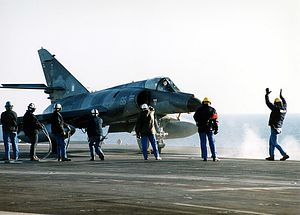In both word and deed, France is showing its commitment to maintaining a military presence in the Pacific to protect its national interests as well as contribute to maintaining stability in the region while protecting crucial international norms and rights.
In remarks to this year’s Shangri-La Dialogue, a major East Asian defense forum hosted in Singapore, Minister of the Armed Forces Florence Parly was blunt about the security tensions brewing East Asia and the importance of in the region.
“[C]ooperation is more necessary than ever,” she said, “given Asia’s evolving security order and its challenges. It takes no Kissinger to see the building blocks of a global confrontation taking shape here in Asia. We see it in trade wars, tech wars, currency wars, wars of words and the occasional brush between two aircraft or two ships. And this is only the beginning.”
France once had extensive colonial possessions in East Asia, but even in its post-colonial era still has extensive territorial and national interests. Minister Parly explained that “France is not going anywhere, because we are part of the region. We have territories here; we have more than 1.6 million inhabitants, several islands with different statutes, vast exclusive economic zones and the responsibility that goes with the territory.”
She also outlined France’s five priorities in the Indo-Pacific: protection of sovereign interests, French nationals, territories, and exclusive economic zones; promote regional stability through military and security cooperation; preserve free and open access to sea lines of communication; leverage multilateral means to promote strategic stability – especially vis-à-vis North Korea; and help to address and mitigate devastating climate and weather disasters in the region.
As part of France’s commitment to maintaining regional access and navigational freedom, the minister committed to sailing French warships through the South China Sea at least twice a year. She warned that France would not be intimidated by “dubious maneuvers” or accept fait accompli against international law – without naming China as the actor of concern – and highlighted the cooperative nature of its operations, such as the deployment of British helicopters on its warships while patrolling the South China Sea recently.
France is also working to improve defense ties in the region. Last week, a French destroyer made a port visit to Ho Chi Minh City, the first French combatant warship to visit Vietnam since the former colony’s independence, in a major symbolic elevation of the two countries’ defense relationship.
Punctuating France’s participation in the Shangri-La Dialogue was the presence of the aircraft carrier Charles de Gaulle and its escorts in Singapore. The carrier strike group has been on an extended deployment to the Indo-Pacific during which it will have participated in several multinational exercises with partners including the Indian, Australian, British, Japanese, Singaporean, and U.S. navies.

































